The resident must take good care of the apartment. Taking care of your apartment involves cleaning the entire apartment regularly. Any faults, deficiencies or damage to the apartment must be reported to the landlord without delay. The resident may have to pay for the damage if they fail to report it. Particular attention should be paid to the condition of bathroom fixtures, coatings, flooring and wall joints.
The resident can carry out renovations in their apartment, but they must be agreed with the technical building manager. Permission to renovate requires that the work be carried out in a professional manner.
Heating
The buildings usually have central hot water heating. Thermostats on radiators automatically keep the temperature in the room constant. The temperature in the room can be adjusted using the knob on the radiator.
The target temperature for residential apartments is around 21 degrees Celsius. In the bedroom, the temperature may be slightly lower. If the temperature in an apartment falls below 19 degrees or rises above 23 degrees during the heating season and the situation cannot be corrected by individual apartment control, a fault report must be filed. The temperature in a dwelling is measured in the middle of the room or on an inside wall at a height of about one metre.
The thermostat valve must not be covered by thick curtains or large pieces of furniture, but air must circulate freely around the radiator. The surface temperature of the radiators varies between lukewarm and warm during the heating season due to thermostat control.
Ventilation
The ventilation in the building is mechanical, either at normal or high efficiency. In most cases, the ventilation is set to run at high efficiency 3-4 times a day. In some properties ventilation is apartment-specific, and is controlled by the resident using the switches on the cooker hood.
The switch must be kept at least in position 1. While in the apartment, it should be kept in position 2, and while cooking and showering it is recommended to use position 3 or 4. However, you should check the apartment-specific instructions in your apartment.
A roof-mounted extractor fan draws air in through extractor vents in the kitchen, bathroom and walk-in cupboard. You must not change their settings, because then the ventilation of the whole building will be disturbed.
Fresh air enters the dwelling through the upper frame of the windows or through fresh air vents. These replacement air pathways must not be blocked. The most common cause of ventilation problems is blockage or clogging of extractor air valves or replacement air valves.
You can test the functionality of the extractor ventilation using a piece of paper: place a piece of paper over the extractor air valve. The correct airflow will hold the paper in place. Cooker hoods connected to the exhaust duct must not be retrofitted.
Cleaning of equipment
Regular cleaning of the grease filters in the extractor air vents and extractor hoods is the responsibility of the resident.
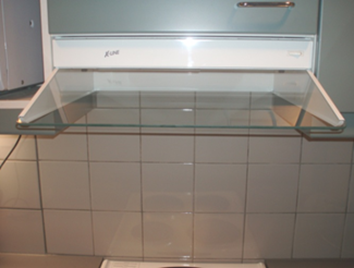
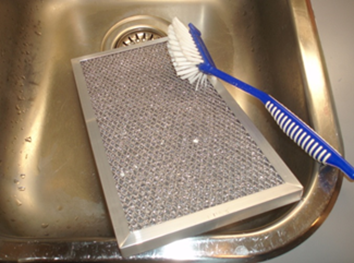
The metal grease filter of the cooker hood must be cleaned regularly, either with a dishwashing brush and washing-up liquid or in a dishwasher.
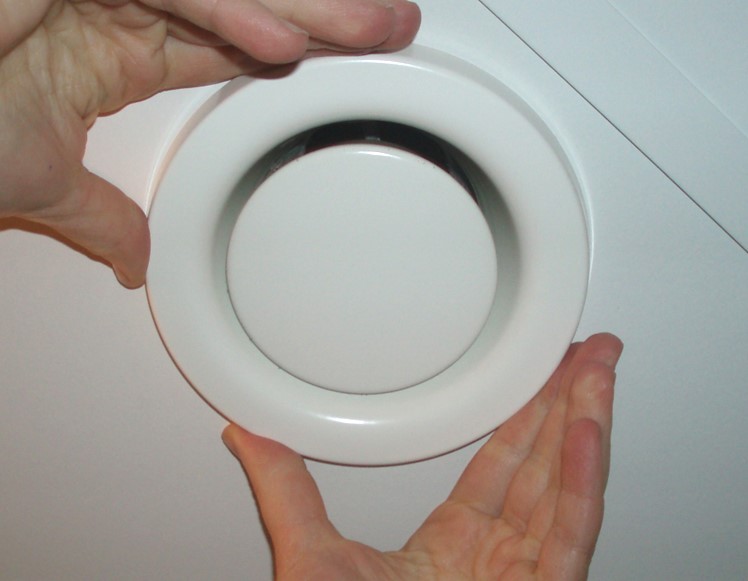
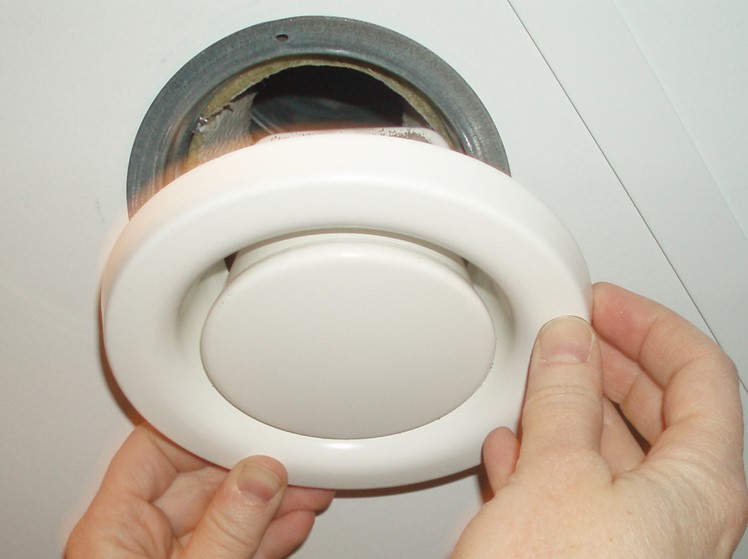
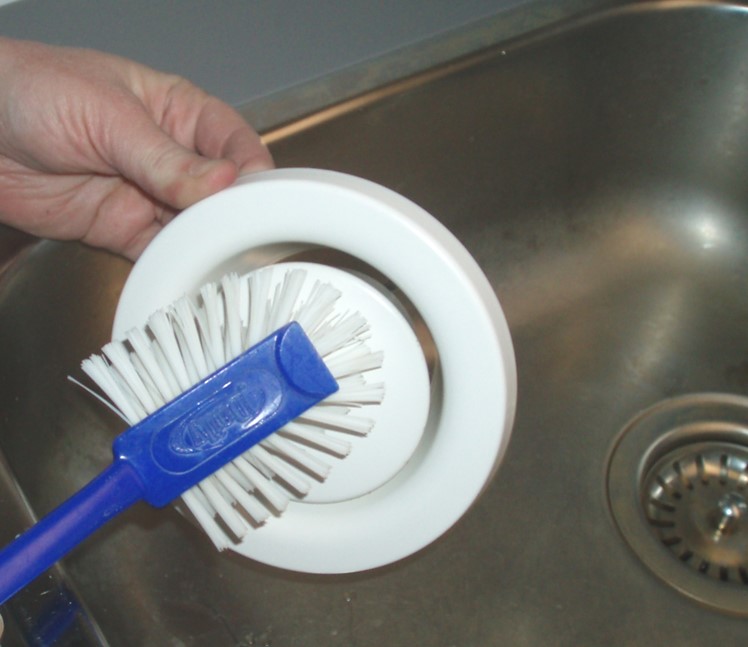
Over time, dust, grease and dirt accumulate between the frame and the filter surface. To remove the extractor valve and its frame, turn the frame anti-clockwise by ¼ turn. Clean the valve with a mild detergent solution and a brush. When cleaning, the valve adjustment must not be changed. The valve is fixed by turning it clockwise.
Water fittings and bathrooms
A leaking toilet or tap must be reported immediately to the fault reporting number. Leaking water fixtures can multiply the water consumption of the whole building.
It is a good idea to dry the bathroom with a squeegee after a shower. It is recommended that large quantities of laundry be dried in the common drying room of the property.
Drilling holes and installing hooks in the walls of the shower stall is prohibited within 1.2 m of the stall, due to the risk of waterproofing damage.
Some bathrooms have a hot water radiator. Its manual control must be turned a few times a year to ensure that the control is working properly and to prevent it from jamming.
Drains
Do not throw down the toilet any sanitary towels, nappies, kitty litter, cotton buds or anything that could cause a blockage in the toilet. Food waste such as coffee grounds, pork fat or other household waste must not be put down the kitchen drain or toilet.
You can keep your drains clean by pouring a few litres of boiling water into them once a month. If you smell sewage in your home, it could be due to a dried-out floor drain. The stench trap is made to work by putting water down the drain.
Washing machines
The cost of installing washing machines is borne by the resident and the work must be done by a professional plumber. The water connections must be pressure-resistant and the tap must be fitted with a non-return valve if the machine does not have one. A washing machine should be installed in the bathroom, if technically possible.
Always install a safety tray under the dishwasher. Permanent fixtures dismantled when the dishwasher is installed must be retained and reinstalled when the dishwasher is removed. Damage caused by a faulty connection is the responsibility of the resident.
When the washing machine is not in use, the filling tap must be closed. Machines must not be left on when you leave home. The condition of the dishwasher’s inlet and outlet pipes must be checked every five years.
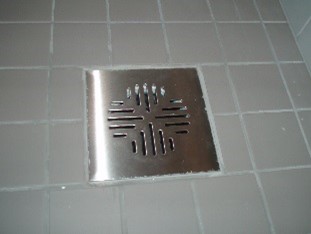
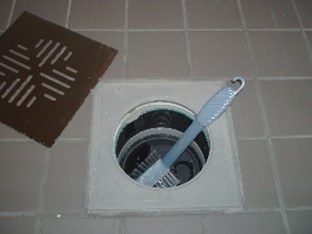
The resident must clean the floor drains. The grating of the floor drain must be lifted out. The floor drain must be cleaned of hair and other solid matter and washed with warm water and detergent.
Saunas in individual dwellings
- Do not wet the walls of the sauna.
- Ventilate the sauna well and keep the air conditioning on full power for about half an hour after turning the stove off.
- Remember to report all damage and defects to Kouvolan Asunnot immediately.
- Check the condition of the stove stones and that they cover the stove’s heating elements.
- The landlord is responsible for the purchase of new stones.
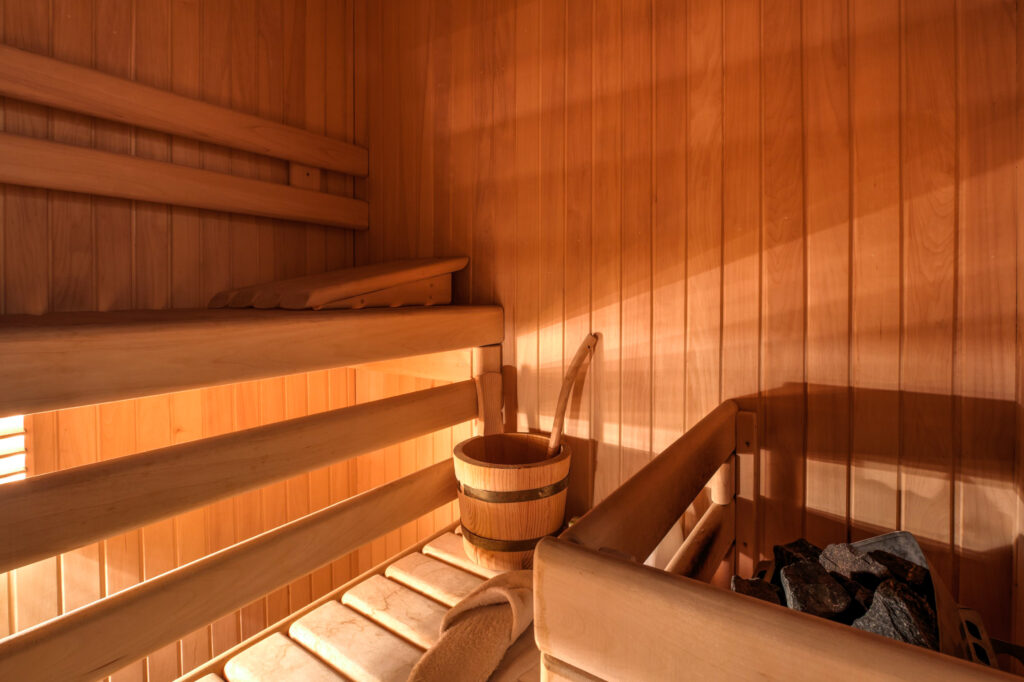
Electrical equipment
Installation and repair of electrical equipment must only be carried out by a professional electrician. Kouvolan Asunnot will order the work for which it is responsible. Residents must replace burnt-out light bulbs, fluorescent tubes, batteries and fuses at their own expense.
Indoor sockets must not be used to power outdoor equipment or wet spaces. Bathroom sockets must not be used during bathing or showering.
It is a good idea to defrost the fridge, freezer box and freezer periodically if they do not have automatic defrosting.
The defrost water drainage pipe may become blocked. It is a good idea to make sure that the drainage pipe works so that water does not run onto the floor.
The fridge, cooker and oven should be cleaned regularly. Kitchen refrigerators and cookers must be removed annually and their backs thoroughly cleaned. Cleaning increases the lifetime of the equipment and reduces electricity consumption. Batteries for electrical appliances must be charged in your own home and under supervision. The room must have a smoke detector and as little fire load as possible. The charging platform must be non-combustible. Only the charger intended for the product should be used for charging.
Changing a fuse
When an electrical appliance does not work, the fault may lie in a blown fuse. If it is an automatic fuse, reset it to the operating position using the switch. If it is a plug fuse, do the following:
- Check which fuse has blown. You can tell by the colour-coded indicator pin at the end of the fuse.
- Switch off the main switch by pressing the switch to the zero position.
- Remove the fuse carrier of the blown fuse with its fuses. If the fuse does not come out of the fuse block with the fuse carrier, replace the carrier and try again.
- Check the amperage of the blown fuse and replace it with an identical undamaged fuse. Fuses can be bought in ordinary shops.
- Screw the fuse carrier and fuses firmly back in place.
- Turn on the electricity using the main switch, i.e. switch to position I.
Balcony
The balcony is intended for relaxation and must be kept clean and clear of snow. The balcony must be cleaned so that no dripping water or debris falls from it. Barbecuing on the balcony is prohibited for fire safety reasons. Clothes and linen must be aired inside the balcony rail. Mats must be placed either on an airing balcony or in the courtyard on a drying rack.
Individual balcony glazing is not allowed.
Pets
In the courtyard area, pets must be kept on a leash. The courtyard area is not for walking your pet, so pets must be exercised outside it.
If an accident happens, the owner must pick up the pet’s doings from the courtyard. The owner must also ensure that the pet does not cause a disturbance or damage the apartment. Pets are not allowed in the sauna, laundry room, etc.
Other matters
You must ask the technical building manager for permission to do the following
- construct a lightweight cat/dog fence
- make home modifications e.g. handrails and shower handles
- install a security lock on an apartment door
